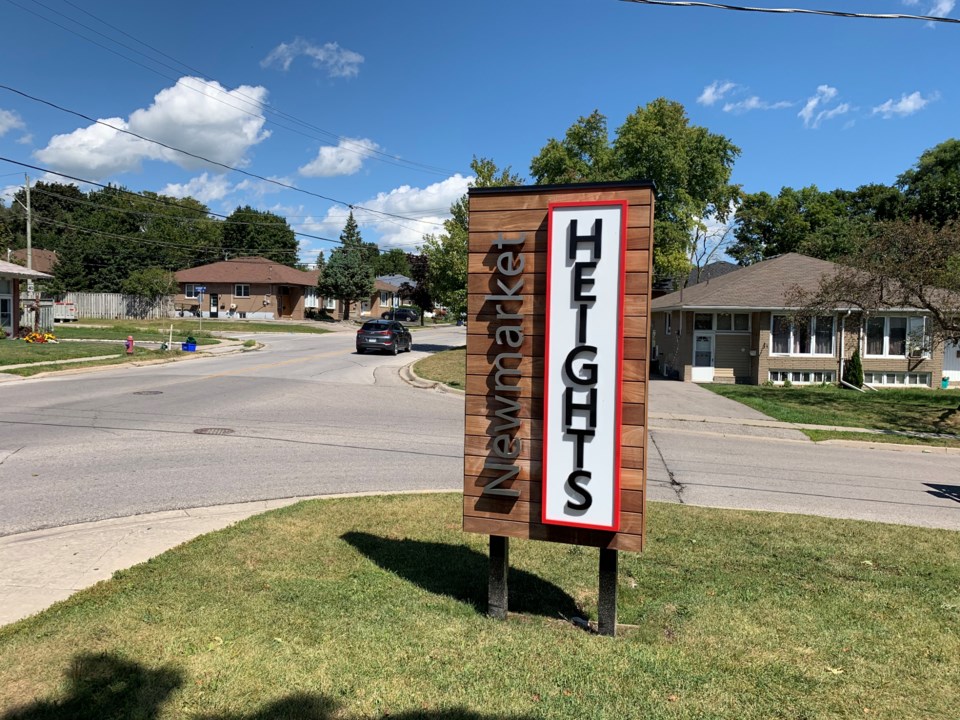The COVID-19 pandemic has hampered plans to better one of Newmarket's historically poorer neighbourhoods.
The bid to assist Newmarket Heights with social programming requires engagement with residents that lost momentum when COVID restrictions were in place, said Social Planning Council of York Region chair Yvonne Kelly, who has worked in the community for some time.
“The biggest challenge for the (community action table) is getting a hold in the community and really connecting with residents,” she said, adding it is vital the effort not peter out after a year. “We will take time. My hope is that the work will continue past the end of the year.”
York Region approved a new community safety and well-being plan May 26. Mandated by the province, the plan aims to improve safety through social programming, with targeted community-driven action. In Newmarket, the focus area of the plan is in the central part of town, around the neighbourhood known as Newmarket Heights.
The plan notes the central area, with approximately 5,000 residents, has three times the renter households (46.2 per cent) compared to the York Region average of 14.2 per cent. About twice as many people are receiving social assistance, compared to regional average (10.4 per cent compared to 4.5 per cent), with an average income approximately $9,000 lower than the regional average ($41,425 versus $50,997).
For Newmarket, the plan focuses on actions to address mental well-being and housing stability. Actions included in the plan are events focusing on tenant legal rights, mental health promotion, implementing a community watch program, and increasing access to prepaid cellphone minutes and food gift cards, among other measures.
Newmarket Heights has had a reputation for years as an area needing support. Newmarket Mayor John Taylor said it was the right area for a plan like this.
“I’ve been speaking for many years to build a plan, a comprehensive plan, to try to build community capacity and resiliency,” he said. “We can create community safety and well-being with proactive approaches and strengthening community, not only through policing and reactive responses.”
The York Region District School Board is also involved in the plan, primarily through Maple Leaf Public School, a community hub for Newmarket Heights. Board senior manager of corporate communications Licinio Miguelo said it is still too early to discuss the plan implementation.
“We are in the process of reviewing it and considering the various roles local schools and the board will have,” Miguelo said.
Former Character Community York Region executive director Susanne Cappuccitti operated a character-building program at Maple Leaf Public School for years. The region opted to discontinue funding the youth charity, contributing to its decision to fold recently.
Still, she said it is important to keep engaging with the community.
“That neighbourhood has a reputation, and it’s unfortunate,” she said. “If people would just take the time to go into those schools and meet those kids, they realize what a great group of kids they are. They have a lot of barriers, and kids in every school are facing barriers. And as someone who grew up with a lot of barriers, the most important thing you can have behind you is a caring community and the support.”
Community engagement efforts will be ongoing, with partners meeting every few months to discuss actions, Kelly said.
The neighbourhood has reported issues due to the housing market, with tenants getting evicted so landowners can resell homes at a markup.
The plan will come with some grant funding to boost efforts to help the community, Kelly said. There are plans to pay someone to come into the community and provide a regular resource for tenants to learn their rights — “someone with very in-depth knowledge of housing rights, housing issues.”
“It doesn’t solve the problem of what’s happening with skyrocketing housing prices. It doesn’t solve the problem of real estate investment trusts gentrifying neighbourhoods … But we are trying to at least prevent people from being evicted from their home and reaching them directly so they understand. They don’t necessarily know about homeless prevention programs. They don’t necessarily know about community clinics.”
Taylor said they hope to collect more data, perhaps in a partnership with York University, to understand how many tenants are leaving Newmarket and to design a better response.
He added they hope to engage the community for the long haul.
“I went to Maple Leaf Public School myself. I’ve known this community for 40 years,” Taylor said. “It’s a community that has had struggles … It’s our responsibility, as an entire town, as a Town of Newmarket, a Region of York, to not accept that, to say we need to do more, we need to do better.”
